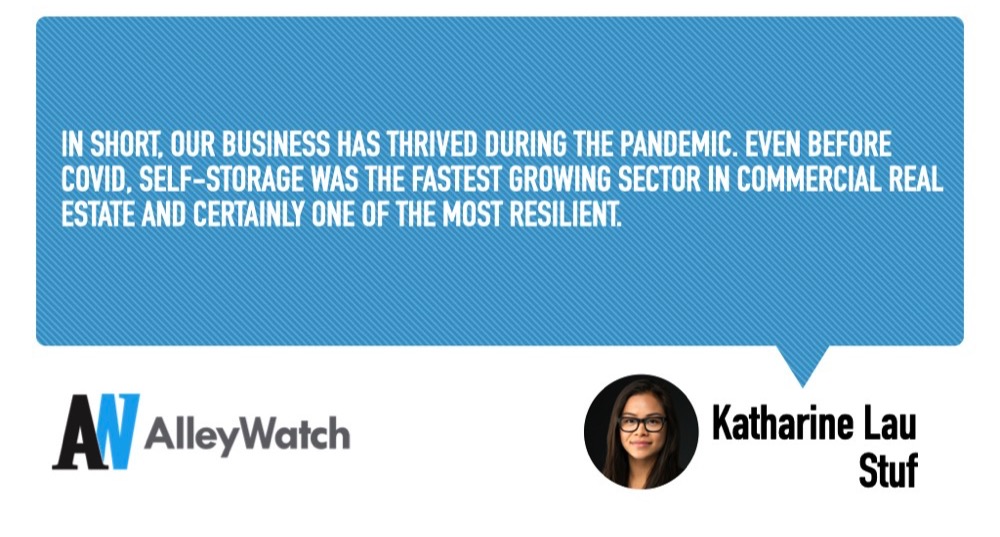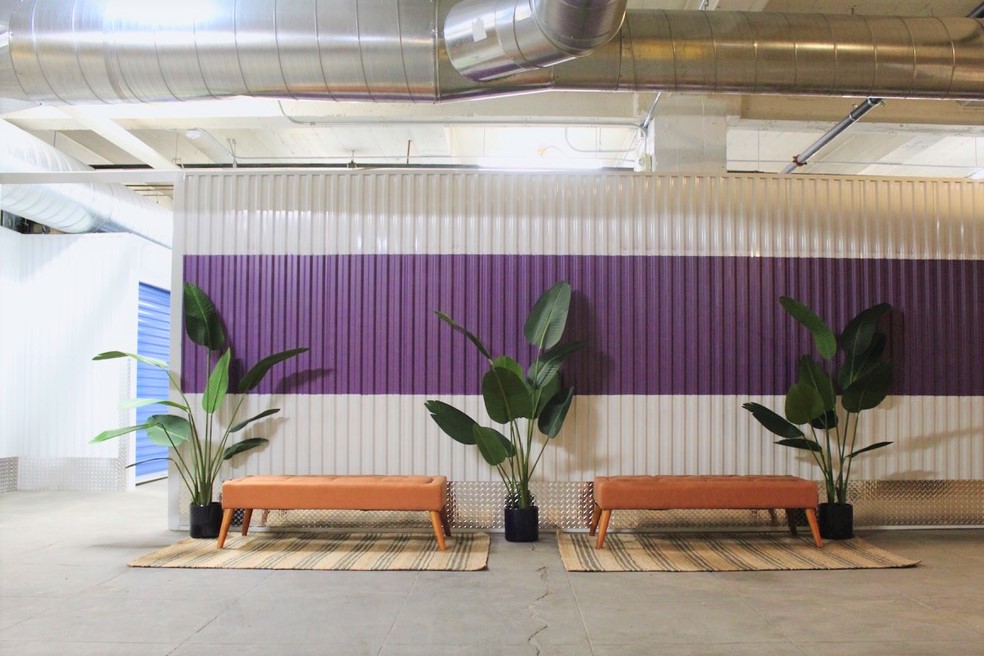As WFH has given many the option to be location agnostic and shelter in new places, the popularity of storage solutions has grown significantly. It’s estimated that another 15-20M individuals also moved during the pandemic, often requiring storage as well. Stuf has emerged as a flexible tech-enabled storage provider that partners with real estate owners to use underutilized spaces like garages, basements, and unoccupied retail space as convenient full-service storage centers for its growing base of customers. Landlords benefit from being able to monetization from their properties while consumers now no longer have to trek to the outermost part of a city where most self-storage facilities tend to be based. The company already offers locations in Brooklyn and SF with plans to add LA shortly; nationwide expansion is planned for the latter portion of 2021.
AlleyWatch caught up with CEO and Cofounder Katharine Lau to learn more about the inspiration for launching Stuf, the pandemic’s impact on the storage industry, and the company’s first round of institutional funding.
Who were your investors and how much did you raise?
We raised $1.8M in seed funding from Harlem Capital, Wilshire Lane Partners, and Harrison Rayford of Lemor Development Group.
 Tell us about the product or service that Stuf offers.
Tell us about the product or service that Stuf offers.
Stuf brings self-storage closer to consumers while delivering an elevated member experience powered by technology. Our “right next door” storage network can extend the boundaries of the home with a click of a button.
What inspired the start of Stuf?
I love spring cleaning, but I’m always left frustrated with the mountain of stuff at the end. It’s all stuff I care about but do I have space for it? No. And do I need to keep it? The answer is always, “yes, yes, I do”. When I started looking for storage space earlier this year, I wanted something close, clean, safe, and affordable. New York City is dotted with self-storage facilities, but I still haven’t found something that meets these basic criteria, and that’s why I’m setting out to reshape self-storage for the modern user— people like me.
How is Stuf different?
What makes us different is how we deliver our product to our members. We’re revamping the entire storage experience, from the physical space design and aesthetic to mobile access, security features, and most importantly, enlightened customer service.
What market does Stuf target and how big is it?
For now, we’re focused on growing in core urban metro areas like New York, Los Angeles, and San Francisco. We’ll look to branch out towards the end of 2021 into new markets. The self-storage industry generates $40B in annual revenue, and we know there’s a huge opportunity ahead of us.
What’s your business model?
We charge our members a monthly subscription fee to use Stuf storage, and as our network continues to grow, we will enhance our offering with flexible transfers between locations, additional add-ons via brand partnerships, and more. On the real estate side, we partner with landlords in revenue sharing agreements to create new cash flow opportunities in underutilized and unsellable spaces, including basements, garages, etc.
How has COVID-19 impacted the business?
In short, our business has thrived during the pandemic. Even before COVID, self-storage was the fastest growing sector in commercial real estate and certainly one of the most resilient. On a more personal note, I know so many people who have moved homes and needed storage over the last few months, which gave me conviction about launching Stuf. On a national scale, 15-20M people moved during the pandemic.
What was the funding process like?
I was very lucky to have incubated Stuf alongside Wilshire Lane Partners. Adam Demuyakor and I met while he was at Fifth Wall, and I was at Industrious. We became friends and always bounced ideas off each other. He brought in Harlem Capital into our seed round, and we had other investors interested from the beginning.
What are the biggest challenges that you faced while raising capital?
I was fortunate to have incubated Stuf alongside one of my seed investors. However, knowing how to prioritize my business plan and present it in a succinct way that investors could connect to was the best lesson throughout the process.
What factors about your business led your investors to write the check?
Strong unit economics (short payback periods and high margins), de-risked business model (revenue sharing), an undisrupted and stagnant industry, and explosive self-storage demand over the last few decades.”
2021 NYC TECH INFLUENCERS | DEADLINE 1/15
NOMINATE NOW
What are the milestones you plan to achieve in the next six months?
Launch 15-20 new locations nationally, launch and refine our digital product, and hire an incredible team to scale the business.
What advice can you offer companies in New York that do not have a fresh injection of capital in the bank?
Leverage your network and don’t be afraid to ask for help. When you’re starting a company, people go out of their way to help you in very unexpected ways. I live by Nike’s motto, “Just Do It!” It sounds cheesy, but it always works.
Where do you see the company going now over the near term?
We will continue to expand our storage network and develop new product offerings in the short-term. Our broadening tech platform, innovative service model, and “right next door” physical network give us a lot of flexibility in terms of future growth areas.
What’s your favorite outdoor dining restaurant in NYC?
I LOVE TO EAT. I used to have a food blog where I documented my meals. My favorite outdoor restaurant is La Vara. Everything on the menu is incredible, especially the toasted fideos, and it sits on an adorable street in Cobble Hill.”





